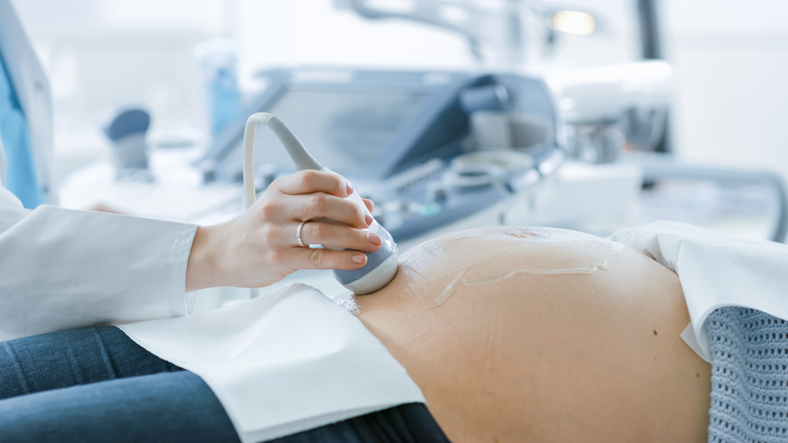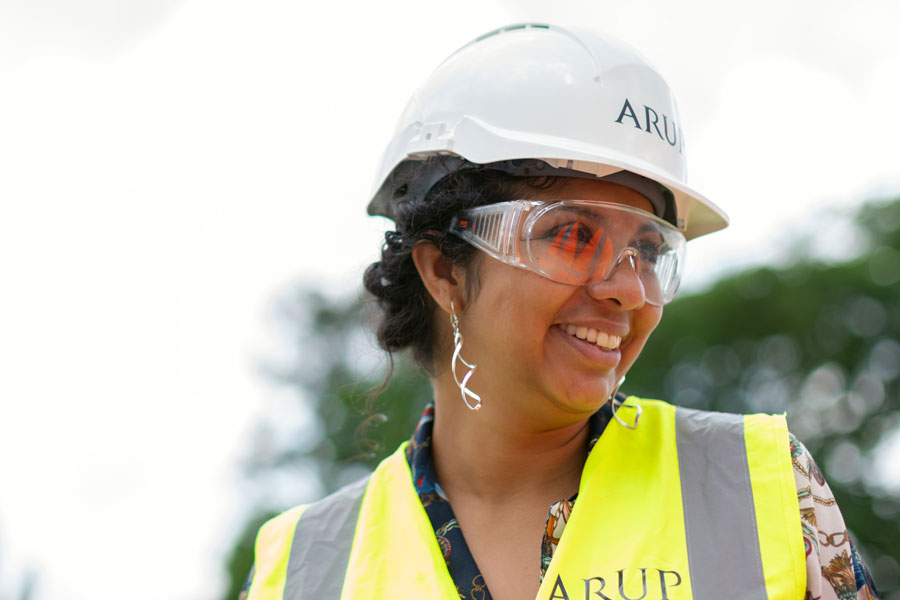Module - Obstetric Ultrasound
HMSU7164 HMSU9064
This module will equip you with skills and knowledge you need for practicing obstetric ultrasound. Tuition is given by leading experts in the field. For those already in possession of a CASE accredited ultrasound qualification (PGCert or above) who wish to expand their scope of practice this module can be taken as a single module for continuing professional development.
The overall aim of this module is to enable you to develop a thorough knowledge and understanding of the fundamental anatomy and physiology of the pregnant female pelvis and the theoretical principles and applications of the ultrasound imaging techniques applied to this area.
The module is part of the MSc Medical Imaging (Ultrasound) programme, which is accredited by CASE (Consortium for the Accreditation of Sonographic Education), allowing you to practice ultrasound in the UK and some overseas countries, on successful completion of the programme. The module is not CASE accredited as a stand-alone module as CASE accredit programmes and not modules.

This module covers the following:
- Applied normal & abnormal cross-sectional anatomy of the pregnant and non-pregnant female pelvis and the developing foetus including examples of complex variants and complex pathology.
- Physiology (including hormones) of pregnancy.
- The advancing role of colour and spectral Doppler in Obstetrics and Gynaecology.
- Current practices and the Fetal Anomaly Screening Programme (FASP) guidelines.
- Advanced examination techniques using trans-abdominal and trans-vaginal approaches in the assessment of routine, challenging and complex cases.
- Psychology of pregnancy and dealing with pregnancy complications.
- Interventional procedures relating to Obstetrics
- Normal and abnormal growth patterns and variants including graphical interpretation associated with the three trimesters of pregnancy included the complexities in each.
- Ultrasound appearances, assessment and measurements in normal conditions related to fetal head, spine, thorax, heart, abdomen, pelvis, limbs, face and intracranial structures.
- Examination protocols in 1st, 2nd and 3rd trimesters of pregnancy; including assessment of maternal complications, assessment of fetal well-being, the role of Doppler, fundamental biometry measurements, placental and amniotic fluid assessment.
- The role of ultrasound in the diagnosis and management of multiple pregnancies and complex pregnancy complications.
- The advancing role of ultrasound, in comparison to other tests, imaging modalities and procedures, in screening and diagnosis of fetal abnormality in the light of current guidelines for best practice in obstetric care and management.
- Ultrasound appearances, assessment and measurements in normal and abnormal conditions related to fetal head, spine, thorax, heart, abdomen, pelvis, limbs, face and intracranial structures.
- Report writing relating to obstetric ultrasound.
- Examination techniques using trans-abdominal (TA) and trans-vaginal approaches (TV).
We have adopted a ‘blended learning’ approach to teaching on the ultrasound programme combining online and (for some modules) campus based face-to-face delivery, and our modules are taught in block release. Your placement site must allocate you the required time to access the learning materials and tutorials and attend any campus-based teaching (if required within your individualised learning agreement) on the scheduled module dates/times.
This module may have an element of live virtual tutorial type sessions using Blackboard Collaborate or Microsoft Teams, which you will be expected to engage with. You will need a suitable laptop or PC with speakers and a webcam and adequate internet access/broadband speed to work remotely on-line in a location that is best suited for you to learn, e.g. in a suitable quiet location at your placement site, or at home.
The delivery of your modules may vary from tutor to tutor, module to module, so please always follow the guidance of your module leader and module Blackboard site.
For IT issues, further details on our IT services can be found here: https://www.cumbria.ac.uk/student-life/facilities/it-facilities/
There is also some further information related to on-line study here on our website which you may find helpful:
https://my.cumbria.ac.uk/Student-Life/Learning/Resources/Studying-from-home/Online-Learning/
This module is delivered via a 5-day academic block of scheduled learning and teaching utilising the virtual learning environment and face to face learning and teaching activities.
The first 3 days are online and the final 2 days are delivered at our Lancaster campus.
The remainder of the module comprises self-directed study and placement-based learning.
How will this module be assessed?
There are two pieces of formal academic (summative) work for the theory element of this module:
HMSU7164
Assignment 1 Case Study Project [weighting 60%]
Assignment 2 Objective Structured Examination [weighting 40%]
The minimum mark of 50%, or above, must be achieved in EACH assessment item in order to pass the module
Plus...
HMSU9064 Clinical Portfolio:
Clinical Pebblepad Portfolio
The clinical practice element is graded ‘Pass/Fail’
- This module is only available for stand-alone study, where applicants can prove underpinning relevant previous study, such as an existing CASE accredited ultrasound award from this or another UK academic institution or successful APL against the minimum core modules for PGCert.
- You must have organised and secured access to a suitable clinical placement, mentor, separate local independent assessor and patient case load for a minimum of 15 hours per week, for the duration of the module. If your placement is terminated for any reason, the university cannot assist you in finding another placement. If a suitable clinical placement cannot be found in these circumstances, you will be required to withdraw from the course.
- Applicants must complete a CEMU form to be submitted with their application. This must be completed in full with all required signatures (wet signatures only).
- Applicants should usually be eligible for registration by their respective UK professional or regulatory body e.g. Health & Care Professions Council (HCPC), General Medical Council (GMC), Nursing & Midwifery Council (NMC), College and Society for Clinical Vascular Science (CSVS) or Register of clinical Technologists (RCT). You will also need to provide one reference in support of your application, from the department offering a clinical placement who can confirm your suitability to train in ultrasound.
- Overseas students can only be considered if they are able to secure a suitable placement in the UK or Ireland. Regretfully the university are unable to assist in this process.
- You will usually be required to pass an element of pre-course assessment, carried out in the department sponsoring you. It is the sponsoring department’s responsibility to facilitate this assessment, and this will be carried out to ensure that you show an aptitude for ultrasonography. You will need to undertake a preliminary practical assessment to demonstrate the relevant psychomotor skills such as hand-eye co-ordination, pattern recognition and spatial awareness. The assessment will be of an informal nature, carried out by experienced practitioners in your clinical placement, who will then provide a written reference to confirm your suitability.
- Before being accepted onto the course, all applicants will be interviewed, usually by telephone. Interviewers from the course team will, amongst other attributes, be looking for a commitment to further study, an understanding of content and standard of the course and interpersonal skills.
- As part of the recruitment process, applicants may be assessed for their values using the core requirements set out in the Value Based Recruitment (VBR) Behaviour Framework as outlined in the NHS Constitution.
This course is available as part of a postgraduate degree
PgD Medical Imaging (Ultrasound) PgC Medical Imaging (Ultrasound) Medical Imaging Ultrasound full time MScLocation
Work-based
We are Cumbria’s University – enriching people and place. A place of and for our community. A place of possibility. A place where amazing journeys happen. With guidance and support. Where it’s safe to be brave, to be boldly you.
Find out more
Find out more about studying with us
Attend an Open Day at Cumbria
An Open Day is your opportunity to explore one of 5 campuses, meet your lecturers, and find out how the University of Cumbria could become your new home.





